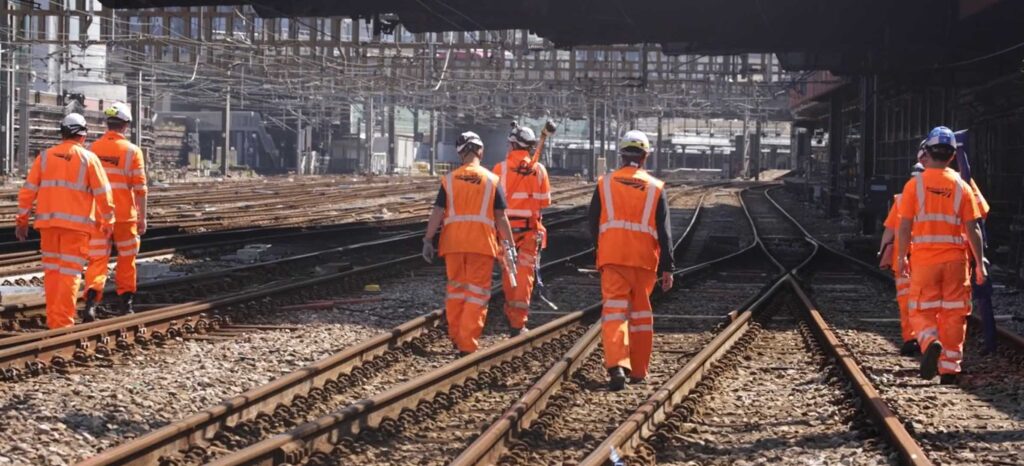Performance improvement plan
Improving train performance across Wales and Western England
Our detailed plan to improve train performance across Wales & Western England has been developed in response to the industry regulator’s (Office of Rail and Road) investigation into performance on the region, which began in autumn 2023.
It was developed with input from the train operators and industry bodies, including passenger groups.
Our aim is to deliver lasting improvements in performance. As well as service for passengers and freight customers across the region. This covers Wales and Borders, the Thames Valley, the West of England and the South West Peninsula.

What is in the plan?
We have committed to delivering more than 50 practical activities. These will deliver tangible improvements for passengers and freight users. This is a far-reaching plan that looks at all aspects of the railway. From maintaining the tracks and signals, to the way that incidents are managed when things go wrong.
The plan stretches all the way into 2029 but most of the activities will be delivered by 2026.
There are several key areas our plan will seek to address:

Proactive maintenance and renewals – We’ll continue to upgrade specific parts of the network where our analysis shows us these are most likely to impact train performance. Such as upgrading points, the movable sections of track that allow trains to move from one line to another, through our points resilience programme in the Thames Valley.

Using insights and data – We’ll use data and technology to understand reasons for train delays and improve how we respond.

Changing how we work together – We’re empowering local decision-making by listening to ideas from passengers and railway staff. We’re also bringing parts of our organisation closer together so they can make train performance improvements.

Learning lessons and planning for change – We’ll apply what we learned from electrifying the Great Western main line and introducing the Elizabeth Line with Transport for London, to other major railway changes. Such as opening a new HS2 station at Old Oak Common in London and opening new freight paths into the Port Talbot Steelworks facility in Wales. We are already taking action to reduce the risk of a decline in train performance as the result of these network changes.

Trespass/suicide – One of the biggest causes of train delay is trespassing on the track and vandalism to equipment, such as electricity cables that power the signals. As a result, we are investing in more security and fencing to prevent public access to the track. Preventing trespassing means we won’t have to slow down as many trains.
Performance improvement news and updates
- Passengers travelling to Heathrow or London Paddington are reminded to check their journey before travelling for the next two weekends
- ORR accepts Network Rail’s robust plan to improve train performance across Wales and Western
- Train services resume in Bristol area with track and bridge upgrades completed on time
- Network Rail warns people to stay safe at level crossings as footage emerges of toddler walking on track with train approaching
- Train services resume after three weeks of major resilience work on Newport to Gloucester line